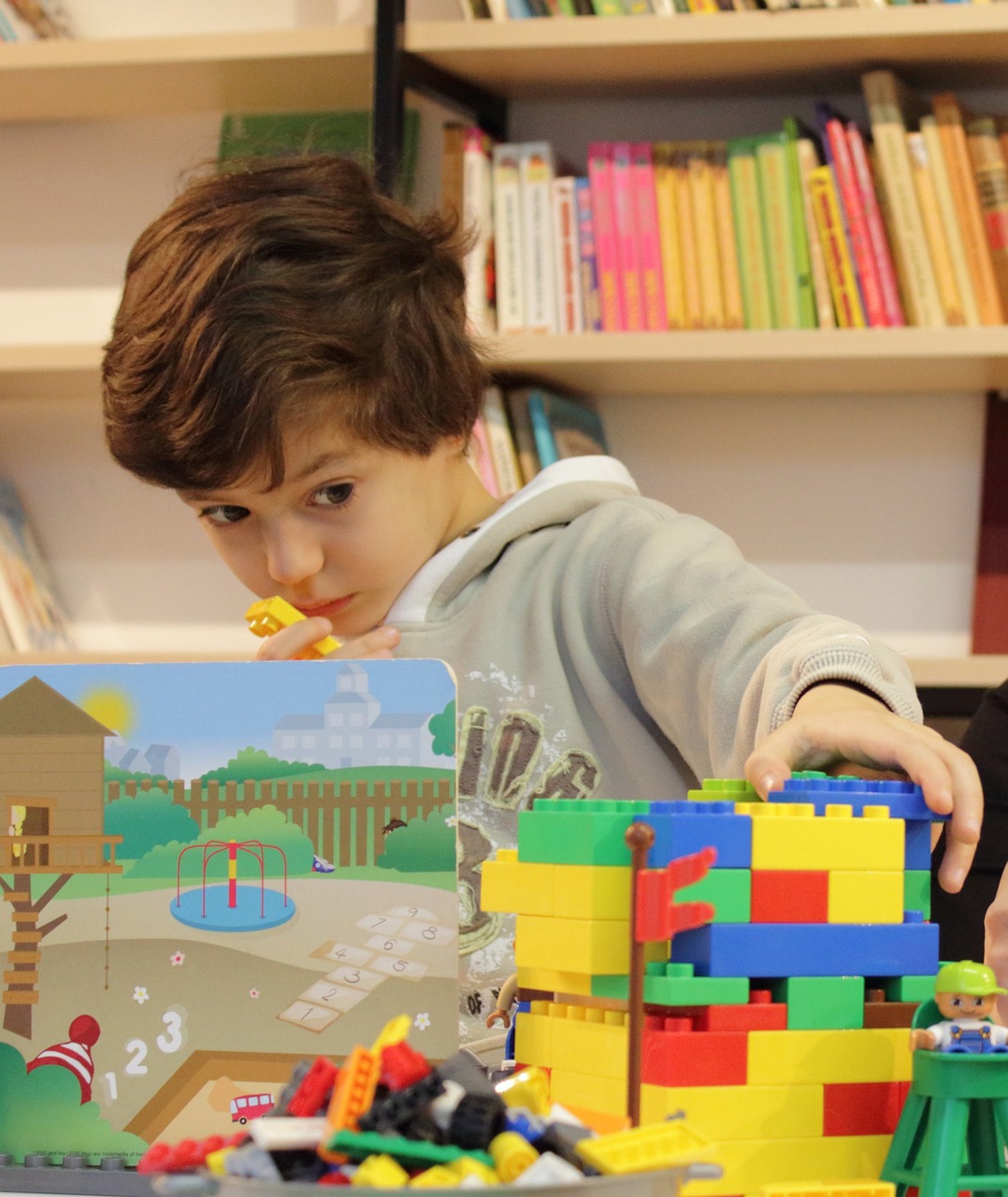Introduction
In today’s fast-paced, technology-driven world, the significance of a strong parent-child relationship cannot be overstated. The bond between a parent and child lays the foundation for a child’s emotional, mental, and social development. It influences their behavior, academic success, and overall well-being. This article explores the essential components of a strong parent-child relationship, the benefits it brings, and practical strategies for nurturing this bond. Whether you’re a new parent or navigating the challenges of adolescence, understanding the importance of this relationship is crucial for fostering a supportive and loving environment that helps children thrive.
Why a Strong Parent-Child Relationship Matters
A strong parent-child relationship is the cornerstone of a child’s development. It provides the emotional security and stability that children need to explore the world and develop a sense of self. Here’s why this bond is so crucial:
- Emotional Security: A strong relationship with parents offers children a sense of safety and trust. This emotional security enables children to express their feelings, seek comfort during distress, and develop resilience against life’s challenges.
- Behavioral Development: Children who have a strong bond with their parents are more likely to exhibit positive behavior. They are better at regulating their emotions, less likely to engage in risky behaviors, and tend to have better social interactions.
- Cognitive Development: The early years of a child’s life are critical for brain development. A nurturing relationship with parents stimulates cognitive development through positive interactions, such as reading, playing, and engaging in conversations.
- Self-Esteem and Confidence: A strong parent-child relationship fosters a positive self-image. When children feel loved and valued by their parents, they develop higher self-esteem and confidence, which is crucial for their success in school and later in life.
- Mental Health: Children who grow up in a supportive environment with strong parental bonds are less likely to experience mental health issues like anxiety, depression, and stress. They are also more resilient in coping with life’s challenges.
Key Elements of a Strong Parent-Child Relationship
To build and maintain a strong parent-child relationship, several key elements must be present. These include:
- Effective Communication: Open, honest, and age-appropriate communication is the foundation of a strong relationship. Parents should listen actively to their children, acknowledge their feelings, and respond thoughtfully. This helps children feel understood and valued.
- Quality Time: Spending quality time together is crucial. It’s not just about the quantity of time, but the quality of interactions that count. Engaging in activities that both the parent and child enjoy strengthens the bond and creates lasting memories.
- Unconditional Love: Children need to feel that their parents love them unconditionally, regardless of their behavior or achievements. This sense of unconditional love gives children the confidence to be themselves and pursue their interests without fear of judgment.
- Consistent Support: Children thrive when they know they can rely on their parents for support. This includes emotional support, guidance, and assistance with challenges. Consistency in support helps children develop trust and a sense of security.
- Setting Boundaries: While love and support are important, setting boundaries is equally crucial. Clear, consistent boundaries help children understand expectations and consequences, fostering self-discipline and responsibility.
- Modeling Positive Behavior: Children learn by observing their parents. Modeling positive behaviors such as kindness, empathy, and respect teaches children how to interact with others and manage their own emotions.
Challenges to Building a Strong Parent-Child Relationship
Despite the importance of a strong parent-child relationship, several challenges can hinder its development. Being aware of these challenges can help parents take proactive steps to overcome them.
- Busy Lifestyles: In today’s world, parents often juggle multiple responsibilities, including work, household chores, and social obligations. This can leave little time for meaningful interactions with children. Prioritizing time for family can help mitigate this challenge.
- Technology and Screen Time: The rise of technology has introduced new challenges in parenting. Excessive screen time can lead to reduced face-to-face interactions, which are crucial for building a strong relationship. Setting limits on screen time and encouraging activities that involve direct interaction can help.
- Parental Stress: Stress from work, financial pressures, or personal issues can affect a parent’s ability to be present and emotionally available for their children. Managing stress through self-care and seeking support when needed can help parents maintain a strong bond with their children.
- Differences in Parenting Styles: Conflicting parenting styles between parents can create confusion and tension within the family. It’s important for parents to communicate and agree on a consistent approach to parenting.
- External Influences: Peers, media, and societal pressures can influence a child’s behavior and attitudes, sometimes challenging the parent-child relationship. Open communication and reinforcing family values can help mitigate these external influences.
Strategies for Strengthening the Parent-Child Relationship
Building and maintaining a strong parent-child relationship requires intentional effort. Here are some strategies that can help:
- Prioritize One-on-One Time: Regularly set aside time to spend with your child without distractions. This could be as simple as having a daily chat before bedtime, going for a walk together, or engaging in a shared hobby. The key is to be fully present during these moments.
- Encourage Open Communication: Create an environment where your child feels comfortable expressing their thoughts and feelings. Ask open-ended questions, listen without judgment, and validate their emotions. This builds trust and encourages your child to come to you with their concerns.
- Practice Active Listening: Active listening involves not just hearing the words your child says but also understanding the emotions behind them. Show empathy, ask clarifying questions, and reflect back what you’ve heard to ensure you’re on the same page.
- Celebrate Achievements and Efforts: Acknowledge and celebrate your child’s achievements, big or small. Praise their efforts, not just the outcomes. This reinforces their sense of accomplishment and encourages a growth mindset.
- Create Family Rituals and Traditions: Family rituals, such as weekly game nights, holiday traditions, or regular family dinners, provide a sense of continuity and belonging. These rituals create opportunities for bonding and building a shared family identity.
- Be Consistent with Discipline: Consistency in discipline helps children understand the consequences of their actions and the importance of following rules. However, discipline should be balanced with understanding and flexibility, considering the child’s age and individual needs.
- Show Affection: Physical affection, such as hugs, kisses, and holding hands, can strengthen the emotional bond between parent and child. Even as children grow older, finding ways to show affection remains important.
- Be a Positive Role Model: Demonstrate the values and behaviors you want to instill in your child. Whether it’s showing kindness to others, managing stress, or maintaining a positive outlook, your actions will leave a lasting impression on your child.
- Foster Independence: Encourage your child to take on age-appropriate responsibilities and make decisions. This builds their confidence and helps them develop a sense of autonomy while knowing they have your support.
- Seek Professional Help When Needed: If you’re facing challenges in your relationship with your child that you can’t resolve on your own, don’t hesitate to seek professional help. Family therapy or counseling can provide valuable insights and strategies for improving your relationship.
The Long-Term Benefits of a Strong Parent-Child Relationship
The benefits of a strong parent-child relationship extend far beyond childhood. Here are some of the long-term advantages:
- Academic Success: Children with strong parental support are more likely to excel academically. They tend to have higher grades, better attendance, and a more positive attitude toward school.
- Social Competence: A strong parent-child bond fosters social skills, such as empathy, cooperation, and communication. These skills are essential for building healthy relationships with peers and navigating social situations.
- Emotional Intelligence: Children who experience strong emotional connections with their parents develop better emotional intelligence. They are more adept at recognizing and managing their emotions and understanding the emotions of others.
- Resilience: A strong parent-child relationship provides children with the resilience needed to cope with adversity. They are better equipped to handle stress, bounce back from setbacks, and maintain a positive outlook on life.
- Healthy Relationships in Adulthood: The relationship a child has with their parents often serves as a model for their future relationships. Children who experience a loving and supportive relationship with their parents are more likely to form healthy, fulfilling relationships as adults.
- Reduced Risk of Behavioral Issues: Children who have a strong bond with their parents are less likely to engage in risky behaviors, such as substance abuse, delinquency, and early sexual activity. They are also less likely to experience mental health issues like anxiety and depression.
- Positive Parenting in the Next Generation: A strong parent-child relationship sets the stage for positive parenting in the next generation. Children who grow up in a supportive environment are more likely to adopt similar parenting practices with their own children, perpetuating a cycle of healthy, loving relationships.
Conclusion
A strong parent-child relationship is one of the most valuable gifts a parent can give to their child. It provides the foundation for a child’s emotional, social, and cognitive development, setting them up for success in all areas of life. While challenges are inevitable, the effort invested in nurturing this bond is well worth it. By prioritizing communication, spending quality time together, and showing unconditional love and support, parents can build a lasting relationship with their children that will endure through all stages of life. Remember, it’s never too late to strengthen your relationship with your child and create a positive, nurturing environment where they can thrive.




This is very well explained.
thanks